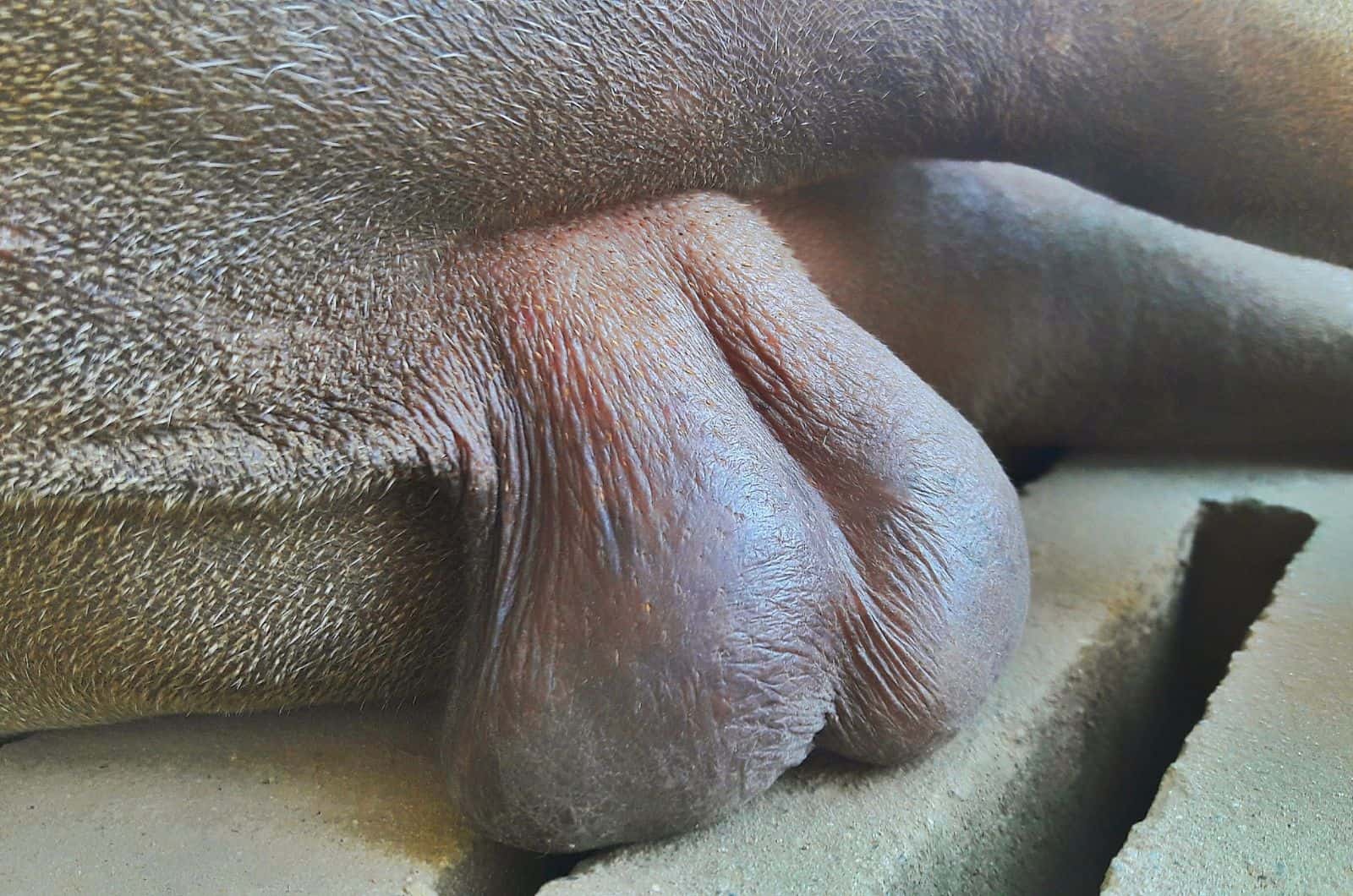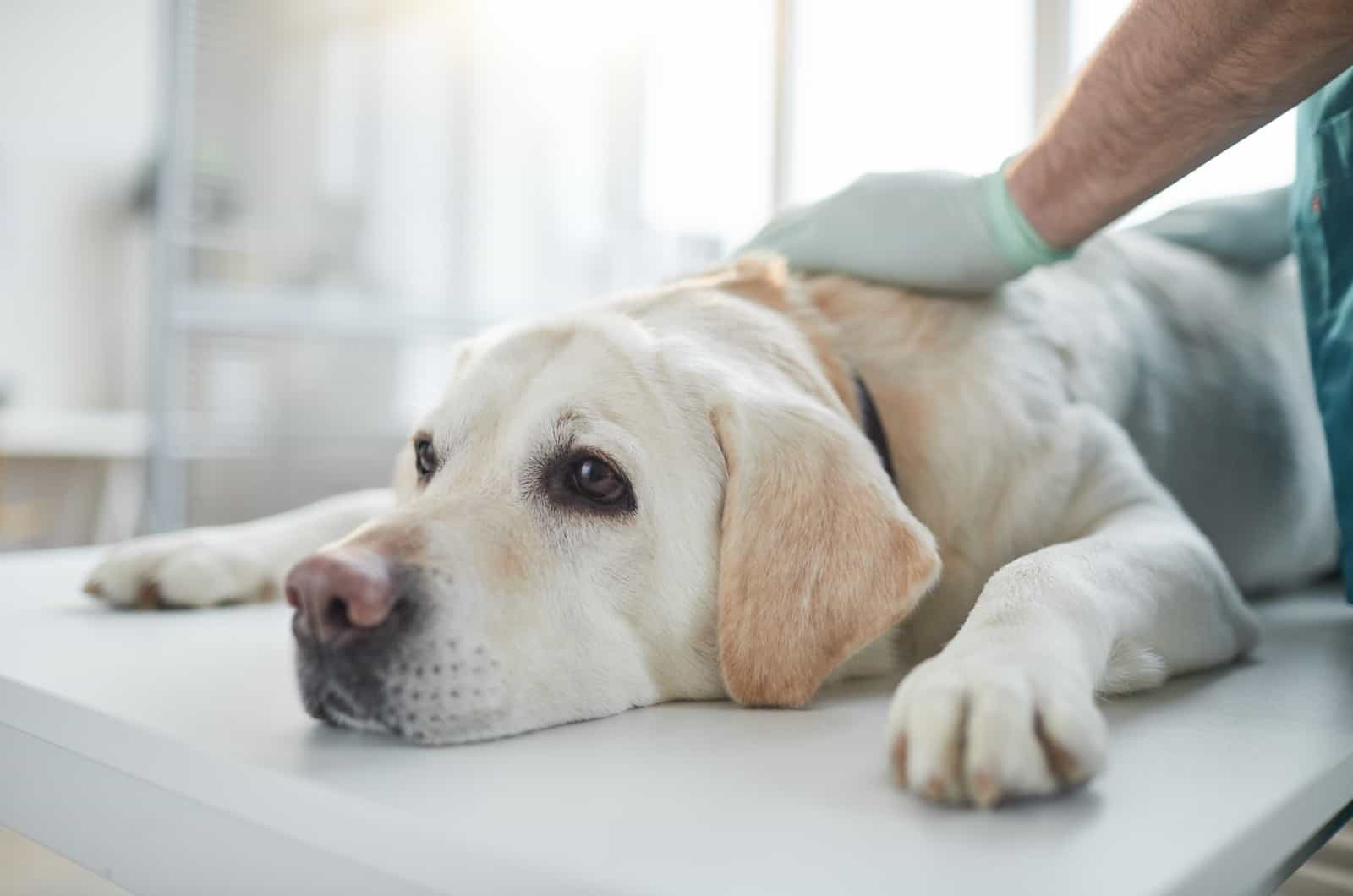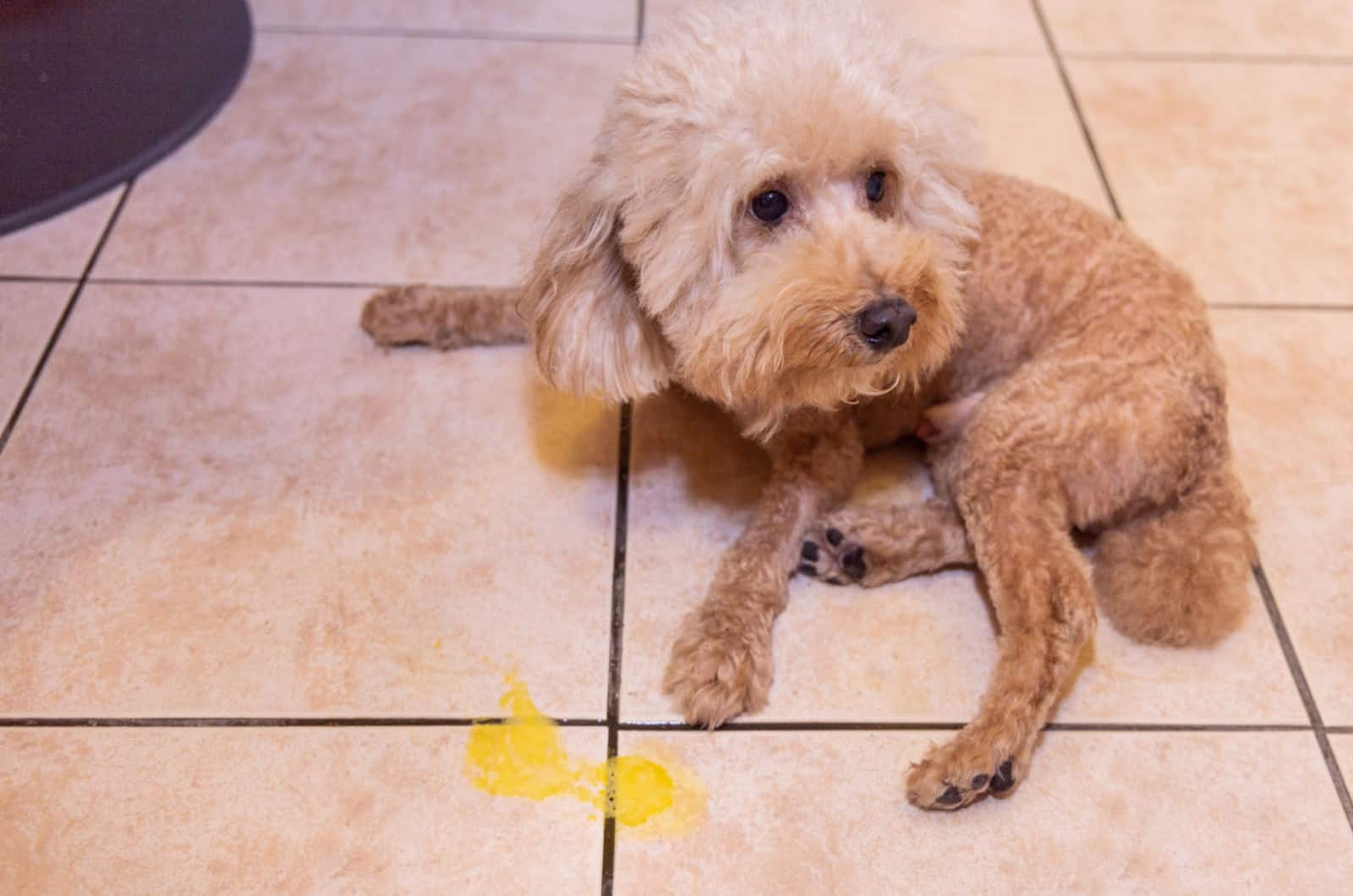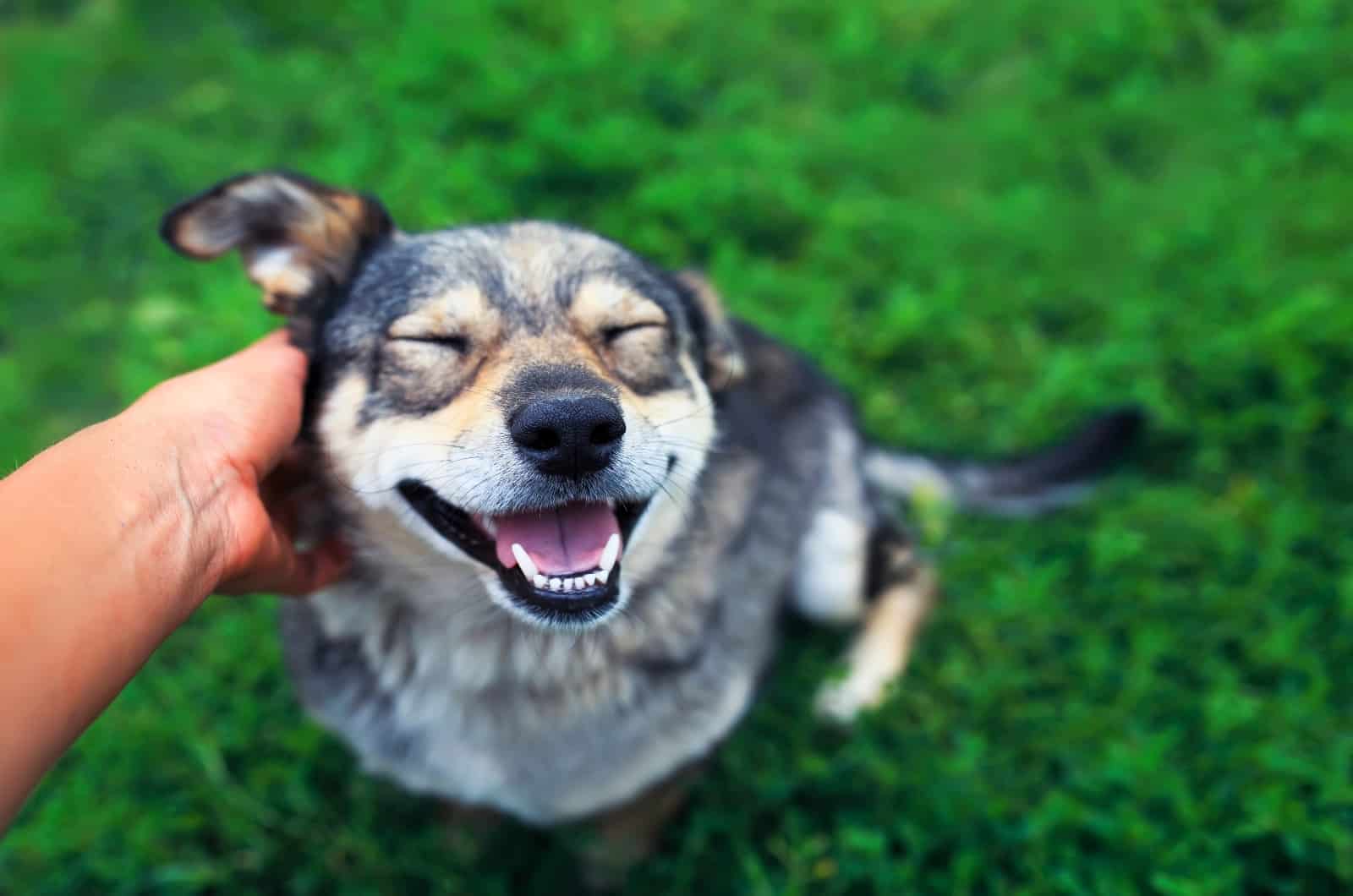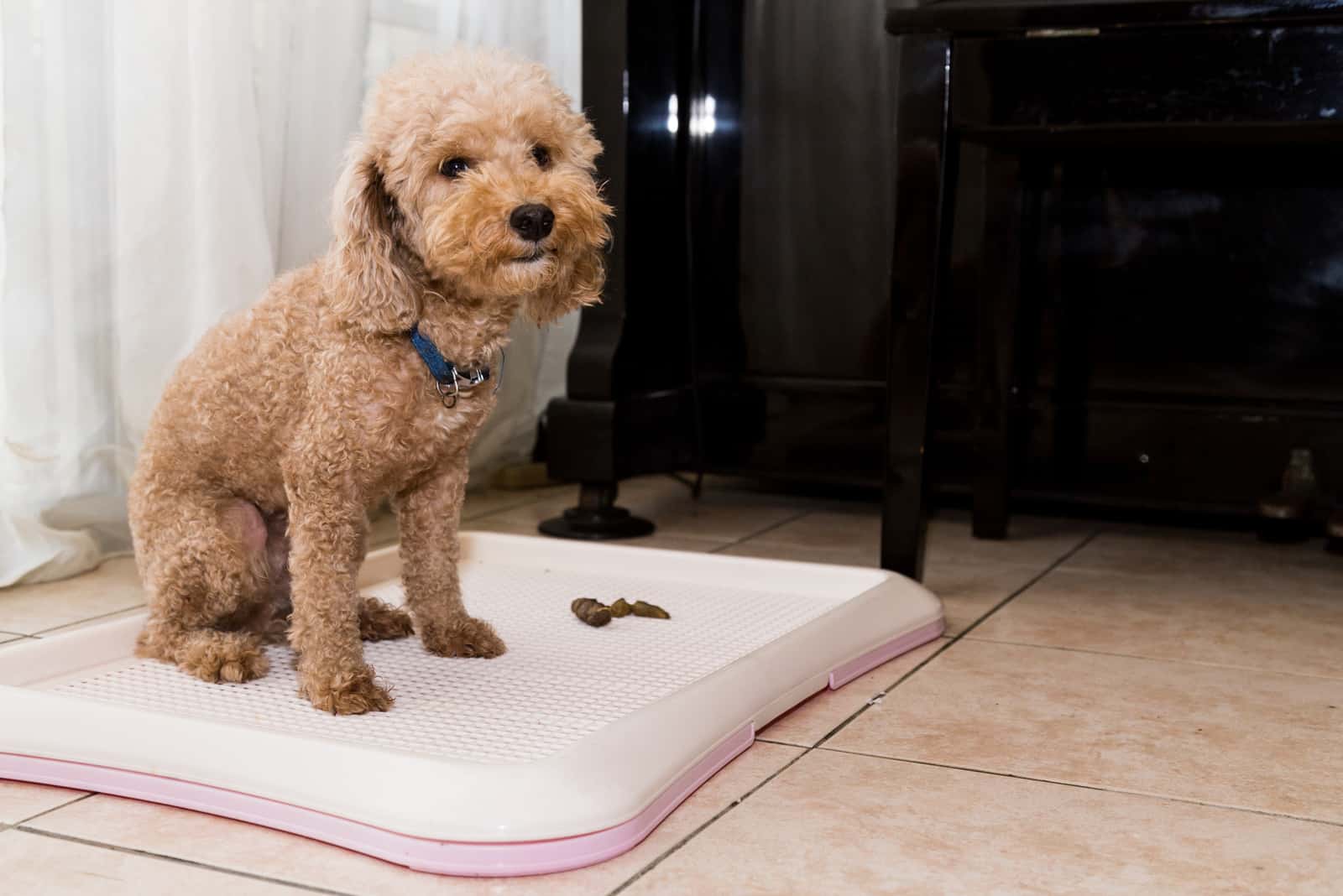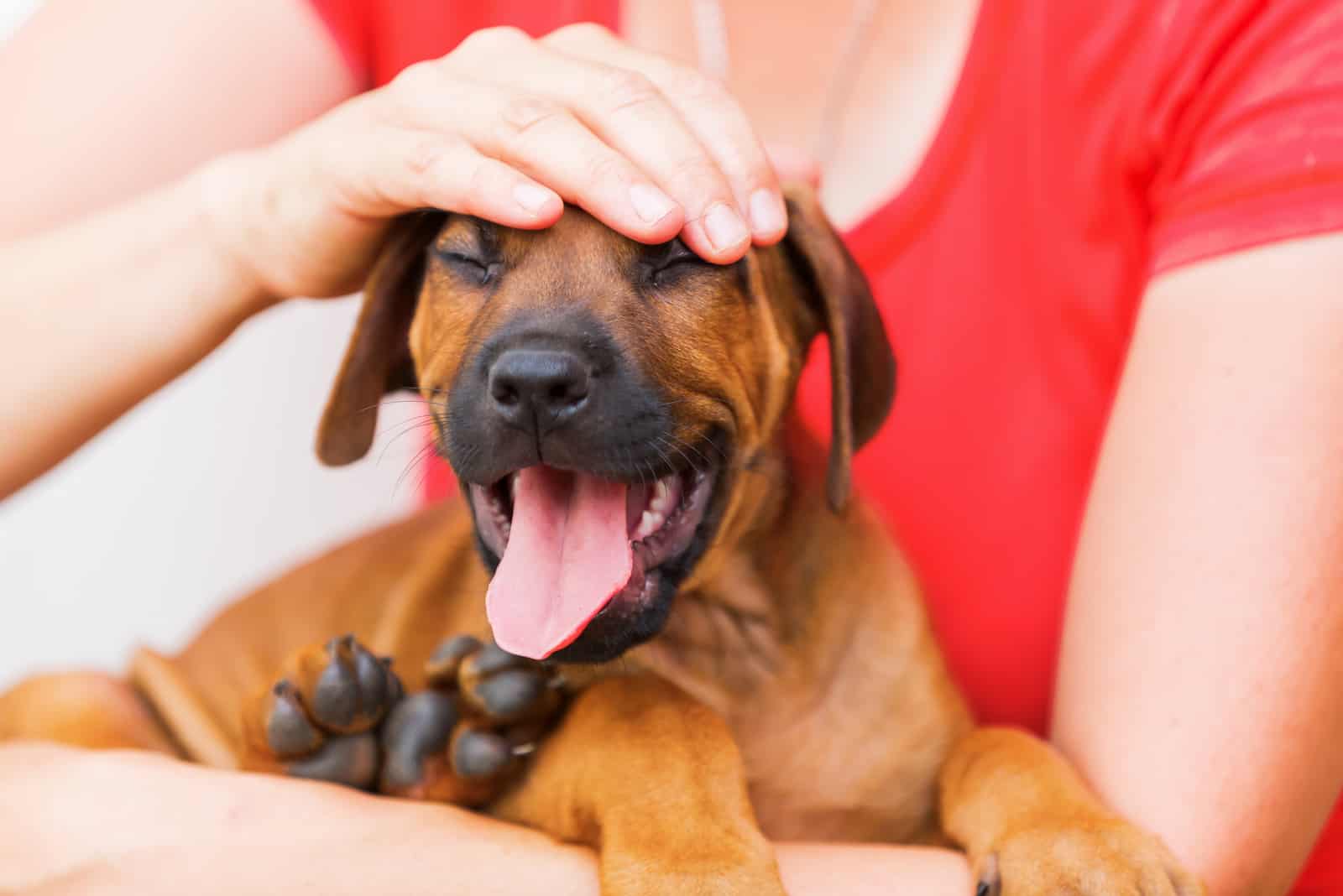There’s nothing worse than your German Shepherd suffering from some health problem, especially when the problem is hidden on the inside.
Such is the case with worms, but how can you tell when your poor pooch is infested with them?
Well, there are plenty of signs, some easier to notice, some less so, with the most obvious ones being worms in the stool, lethargy and a clear lack of an appetite.
The problem is that a lot of the signs coinciding with worms are quite similar to many other health issues, so the biggest telltale one is the appearance of worms in your GSD’s poop.
But what are the other ones and what’s the right approach to treating this particular issue? Well, let’s find out.
Here are some of the most common indicators of a canine worm infestation:
1. There Are Worms In The Poop
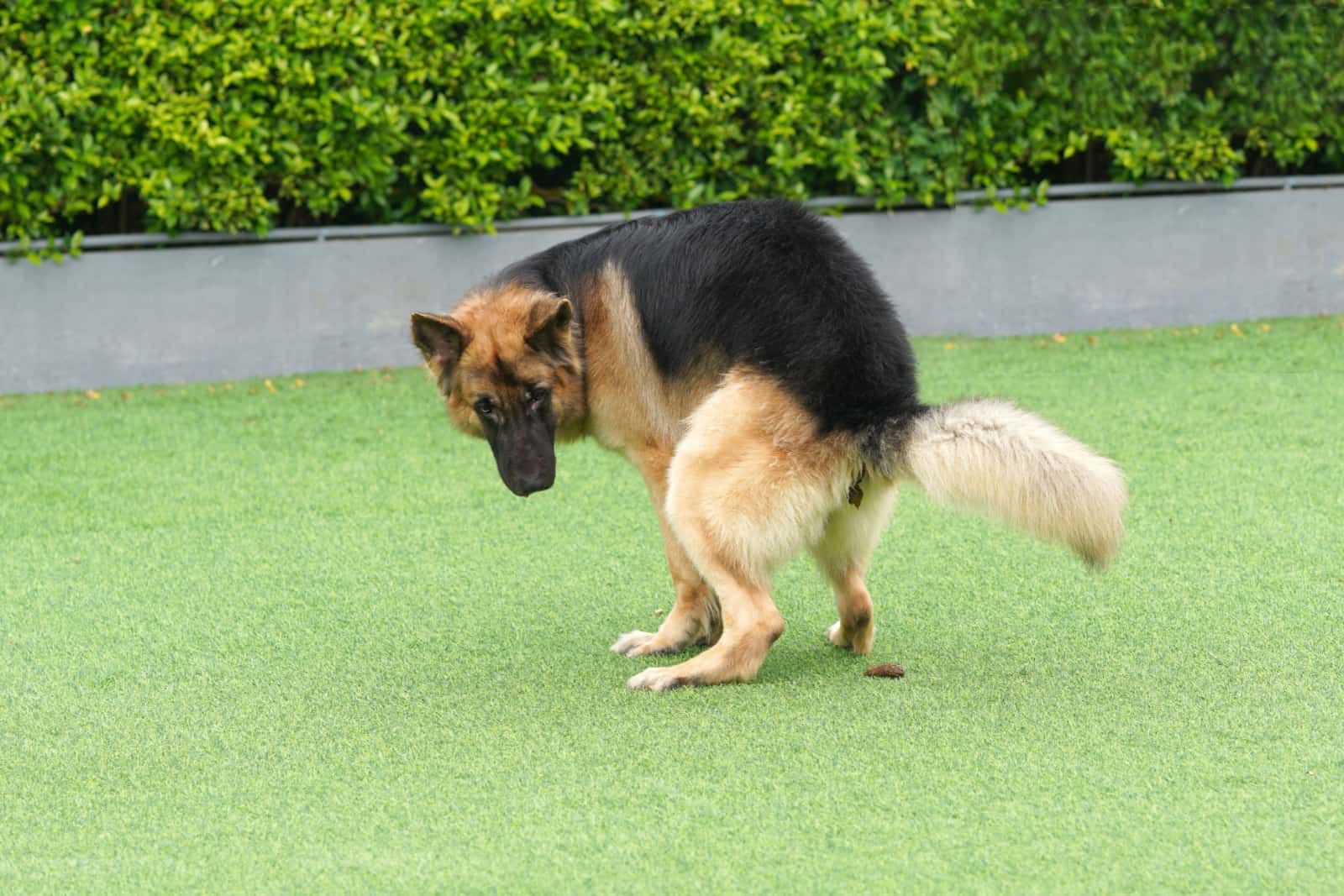
The best way of knowing that your dog is infested with worms is by physically seeing them in the poop after a defecation.
And they aren’t that hard to spot. They’re these long, white strands that take on a variety of different shapes.
The most common ones are ringworms, hookworms and tapeworms, but there are other variants. Besides, the actual visual is more important than the shape which doesn’t change the problem too much.
If you see these, you should get your dog to a vet immediately to prevent any further developments.
Sure, the idea of having to look at your dog’s poop is somewhat revolting, but it’s for your dog’s sake, so a small sacrifice can be made.
2. The Poop Isn’t All Too Solid
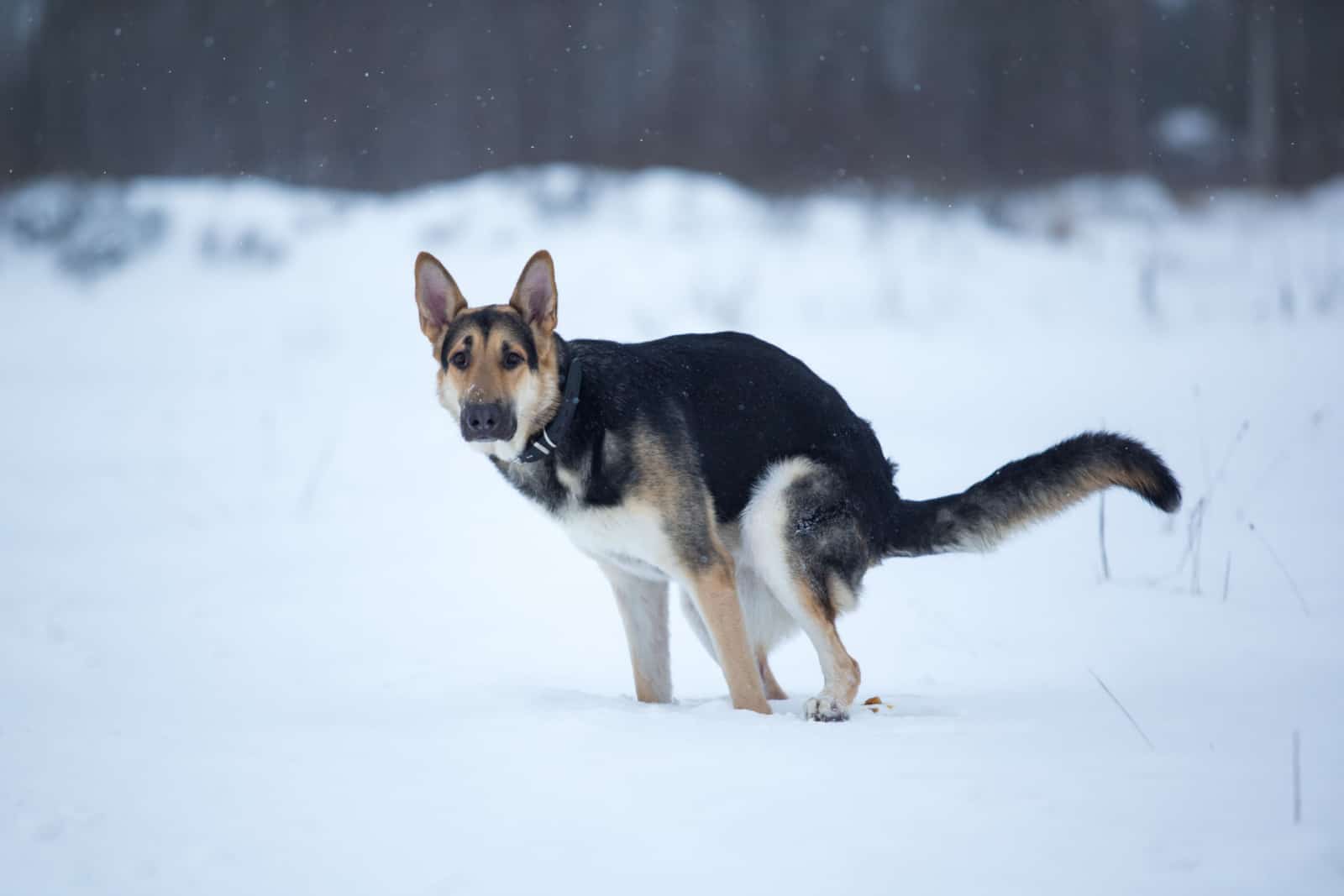
The other indicator, albeit a more generic one, is when the consistency of said poop is closer to a liquid than a solid.
While German Shepherds aren’t strangers to bad stomachs, frequent diarrhea followed by some of the other symptoms on this list are usually a clear sign that something’s messing with their gut.
This is more than likely some sort of worm, a tapeworm most likely, though it’s not a mutually exclusive thing.
If his diarrhea has signs of blood in it, then the situation may have started to worsen, meaning you’ll need to rush him to the vet as soon as possible.
SEE ALSO: My Dog Has Diarrhea But Is Acting Fine: 10 Common Reasons
3. A Lack Of Energy

Lethargy and weakness are relatively common signs that there’s something wrong with your German Sheppie.
When worms come into question, then that means the ones inside him are siphoning his nutrients off which leaves him winded, lethargic and unmotivated.
It’s a dangerous mix, one that needs to be addressed immediately before your dog starts suffering from potential malnutrition or develops anemia.
4. He’s Not Hungry
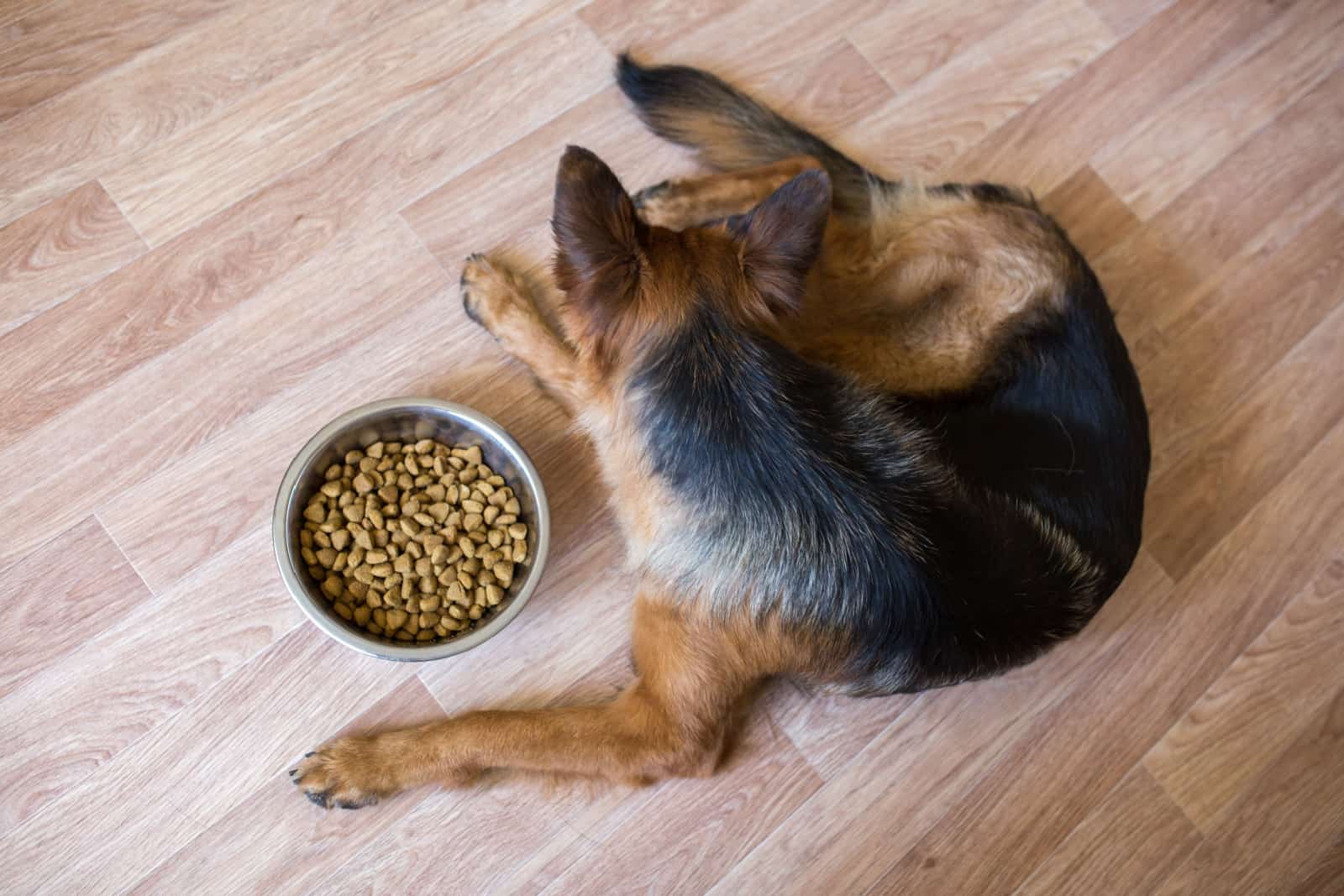
Despite the loss of nutrients, you’d think that the worms would be making the GSD hungrier, but it’s the opposite that happens.
That’s because of the discomfort and pain often caused by said worms which makes the German Shepherd lose the desire to eat.
That can then lead to severe weight loss and further health complications because of it.
5. Detrimental Physical Changes
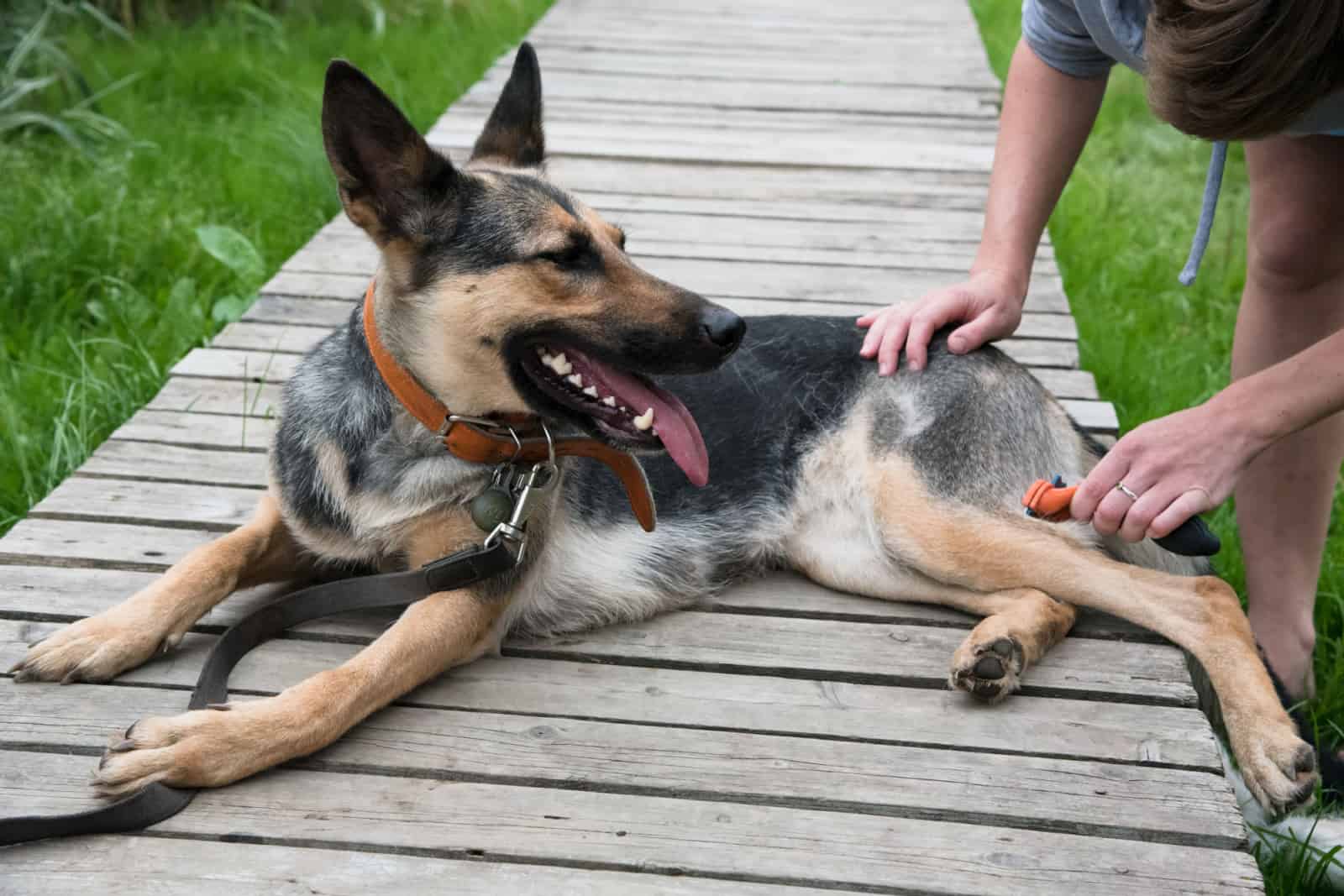
This lack of nutrition can leave your dog’s fur weak and flimsy, even causing it to fall out in places, especially if he’s particularly itchy in places.
Seeing bald spots sprouting all over your GSD all of a sudden is a sign of malnutrition and can be a sign of worms.
On top of that, if your dog has suffered severe weight loss, he’ll end up with a bloated pot belly which hurts on contact.
Don’t try touching it, just observe it as another potential symptom of a worm infestation.
6. A Permanently Itchy Anus
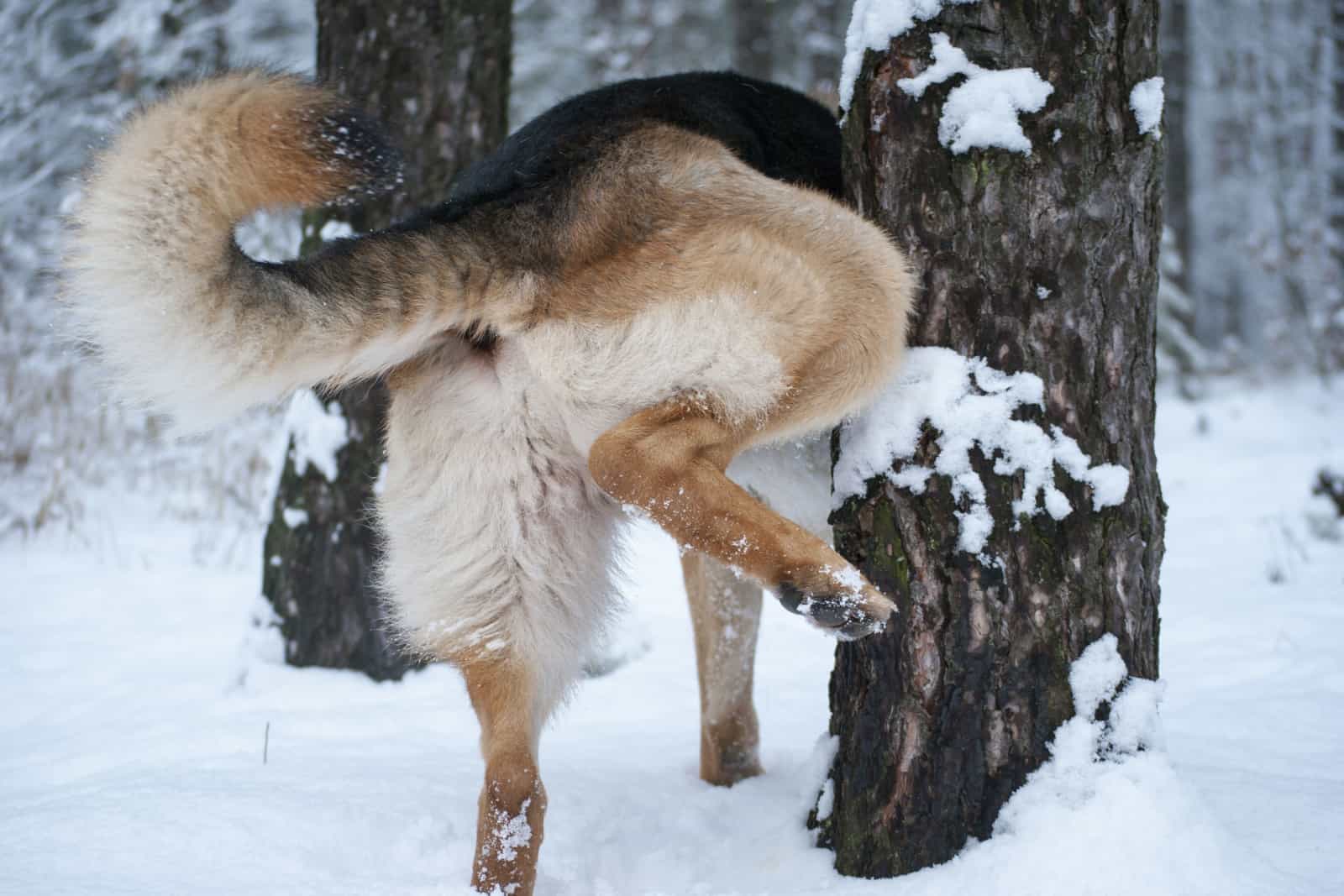
When worms are afoot, your German Shepherd will be doing something that may look silly, but is actually his attempt at trying to scratch an itch, which is dragging his butt across the floor.
Your carpet will be the most likely culprit, in which case you’ll probably need to clean it, but this is done because the lining of the dog’s butt is often left irritated by the worms in question.
Your Sheppie can’t take it and can’t reach there otherwise so he tries scratching it on anything that can do the job for him.
Should this be the case, I advise taking a stool sample to the vet for examination immediately as this is one of the more likely signs of a worm infestation.
7. Vomiting Often

Apart from diarrhea, the contents of your dog’s stomach can come out the other end too.
While a pretty common occurrence with a variety of different health issues, said vomit can also contain traces of worms, be it their eggs or the fully grown worms themselves.
Regardless of their presence though, frequent vomiting warrants a visit to the vet to determine the cause before the loss of fluid causes more complications.
RELATED: Dog Vomit Color Chart: 7 Shades Of Barf
How Do Dogs Contract Worms In The First Place?
Usually, it’s either through eating some contaminated food that isn’t cooked through properly or is found on the street, or by eating the feces of a contaminated dog.
This isn’t exclusive to GSDs though and is likely to happen with any pooch.
Be careful about what he eats to minimize the risk of him getting infected.
That said, it can be hard to avoid it as well over 34% of dogs end up suffering from a form of worm infection in their lifetime.[1]
Is It Hard To Treat?
Not really. Given how many dogs suffer from it, it has become a standard procedure with a very high success rate, though, the sooner you get your dog over for a deworming, the better it’ll be.
Can The Worms Return After Successful Treatment?
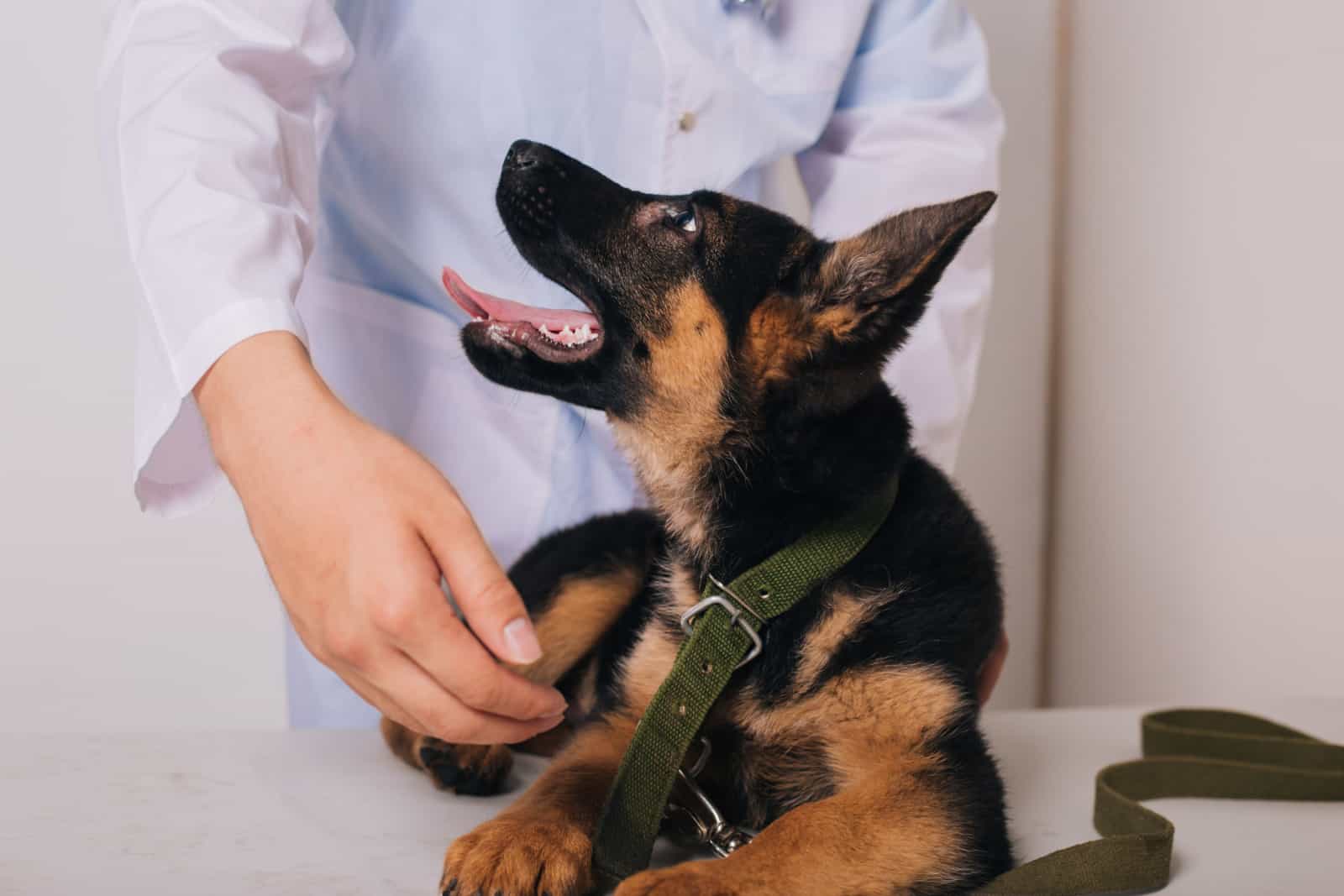
They most definitely can, which is why, at least during your German Shepherd’s puppy period, it’s recommended to get him routinely checked for worms every 2 months or so.
You should do it even if your dog seems fine, as a preventative measure at the very least.
Why Puppies In Particular?
Well, puppies are most at risk because they need their nutrients to properly develop and if worms siphon most of them off, that can cause major problems.
The most serious of these problems is abnormal growth or a potentially fatal outcome. Both horrible in their own right for something that’s easily preventable.
That’s why you ought to pay a great deal of attention to your German Sheppie puppy’s behavior and see if he’s showing any signs of having worms.
If he does, take him to the vet immediately so he can get dewormed and can continue living a carefree life.
How Can I Tell If The Signs Point To My GSD Having A Worm Infection?

As with every other health issue or form of canine behavior, it’s all about the context. One sign on its own won’t tell you much, but should a number of these pop up together, you can narrow it down to the exact culprit.
Some signs will immediately tell you the issue like actually seeing the worms while some are more common among other health problems too.
What Are The Most Common Types Of Parasitic Worms?
As mentioned prior, these would be hookworms, ringworms, and tapeworms in particular.
Each of them attack the intestine in particular and cause a whole lot of trouble for your canine companion.
However, there’s also heartworm, a nasty little pest which is one of the main reasons as to why I keep insisting on immediately checking in with your vet for treatment options.
While removing them is equally as efficient as removing any other worm variant, these worm their way into your dog’s heart and can cause a fatal outcome a lot quicker.
The sooner they’re removed, the more chances your dog has to avoid organ failure and potential death.
Can I Prevent My German Shepherd From Getting Them In The First Place?

You can, at the very least, reduce it, but unless you have him under constant watch, you can’t fully eliminate the possibility of it happening.
If you’re feeding him a raw diet or are generally giving him meat, cook it thoroughly first to kill any bacteria or eggs off.
In the same vein, train him to not take any food from strangers or to eat dog poop. Given the GSD’s discipline, this shouldn’t be too hard a task and will reduce the worm risk greatly.
In Conclusion
While it’s always best that your dog never has to deal with them, there are plenty of signs that tell if your German Shepherd has worms.
These are no different to any other dog breed and often revolve around lethargic behavior, loss of appetite or rapid weight loss.
Other, more apparent signs are an itchy anus and finding worm eggs or full grown worms in the dog’s excrement or vomit should it occur.
The moment you notice something off with your GSD, take him to the vet as soon as you can.
Worms may be easy to get rid of, but if they’re left to linger for too long, they can cause some long term damage to your pupper’s body.
This is especially true for GSD puppies as it can mess with their physical growth and lead to malnutrition which is why it’s important to get him dewormed ASAP.
Though, I know I don’t have to tell you that as I fully believe that you understand the gravity this simple problem may cause and that you’ll take utmost care of your Sheppie.
Until next time, pet parents.
References:
[1] Zoonotic Potential of Common Cat/Dog Intestinal Parasites. DOI

